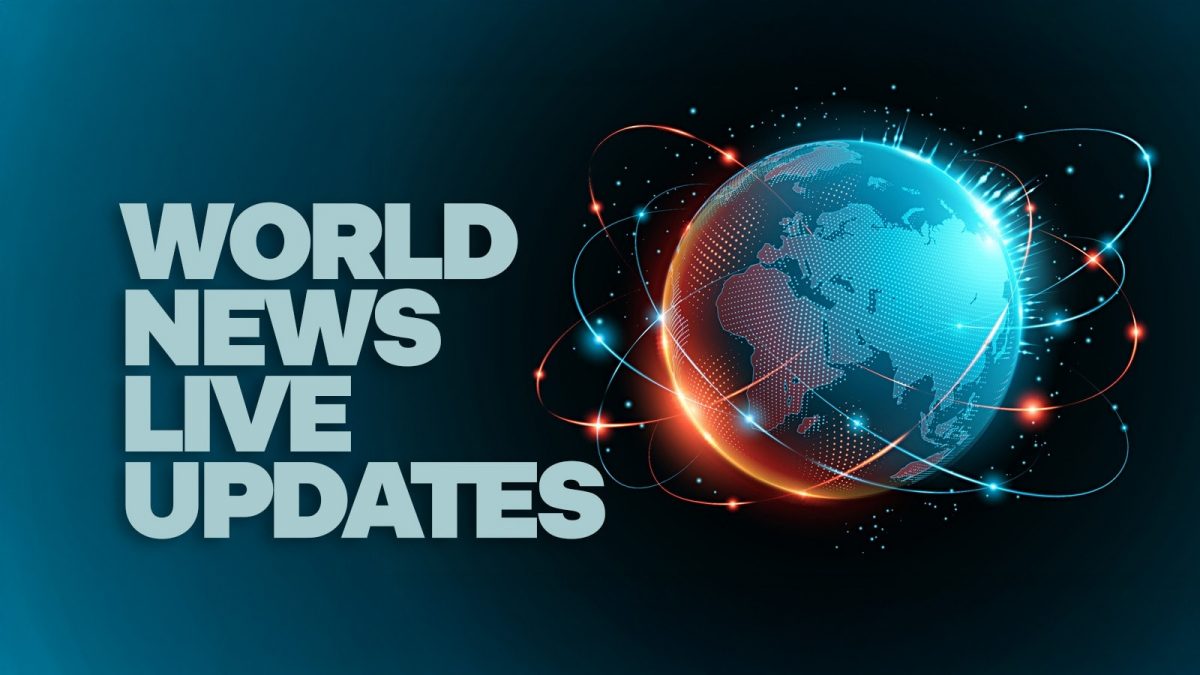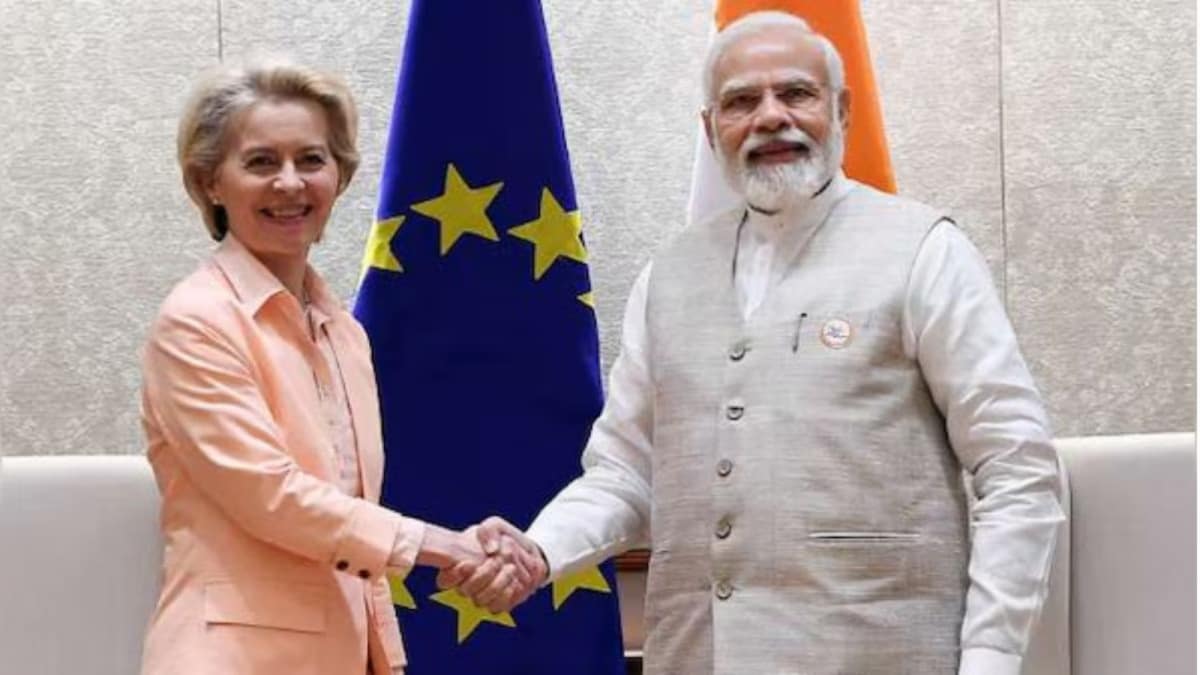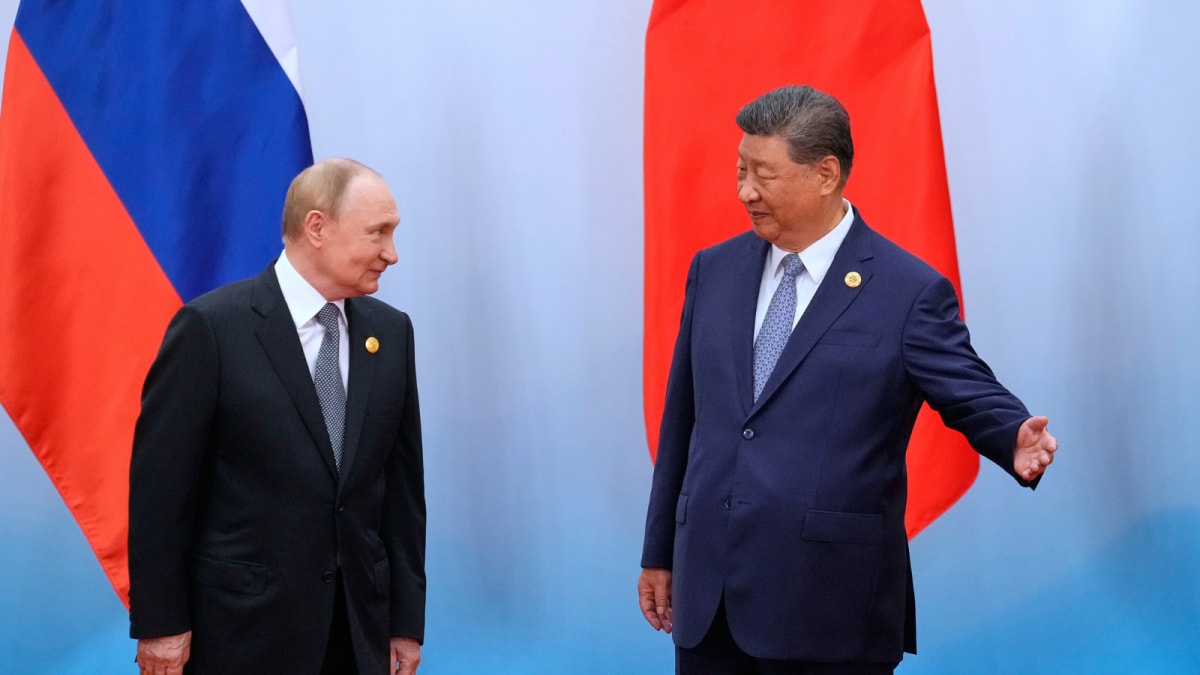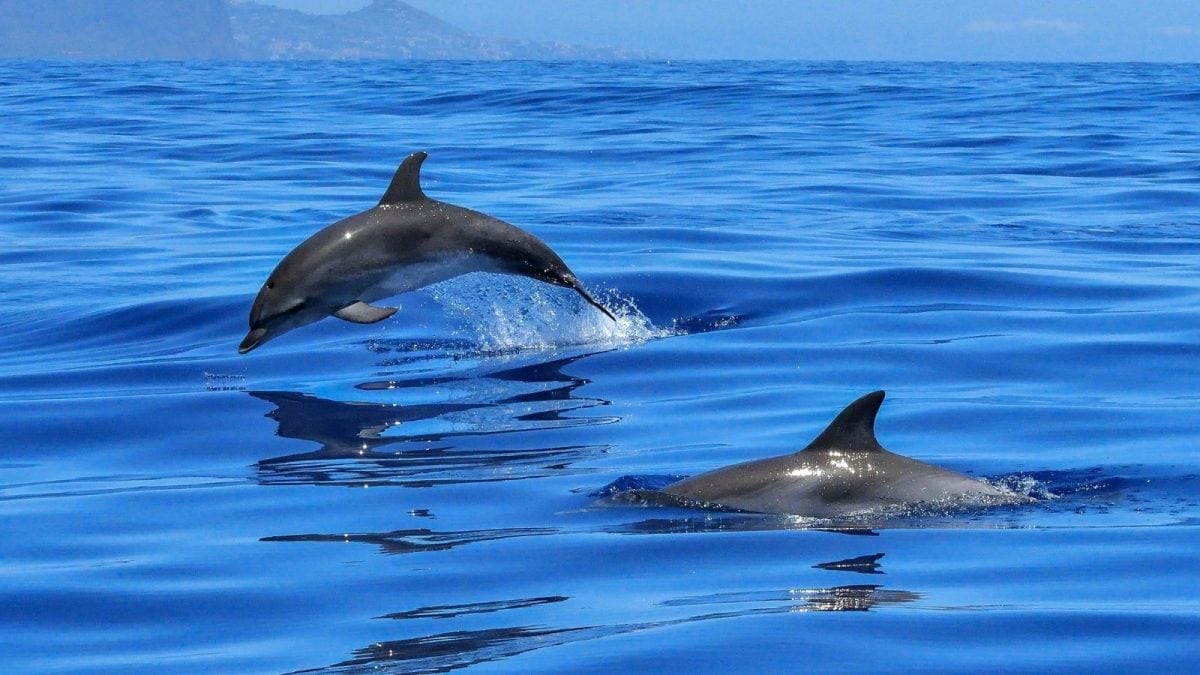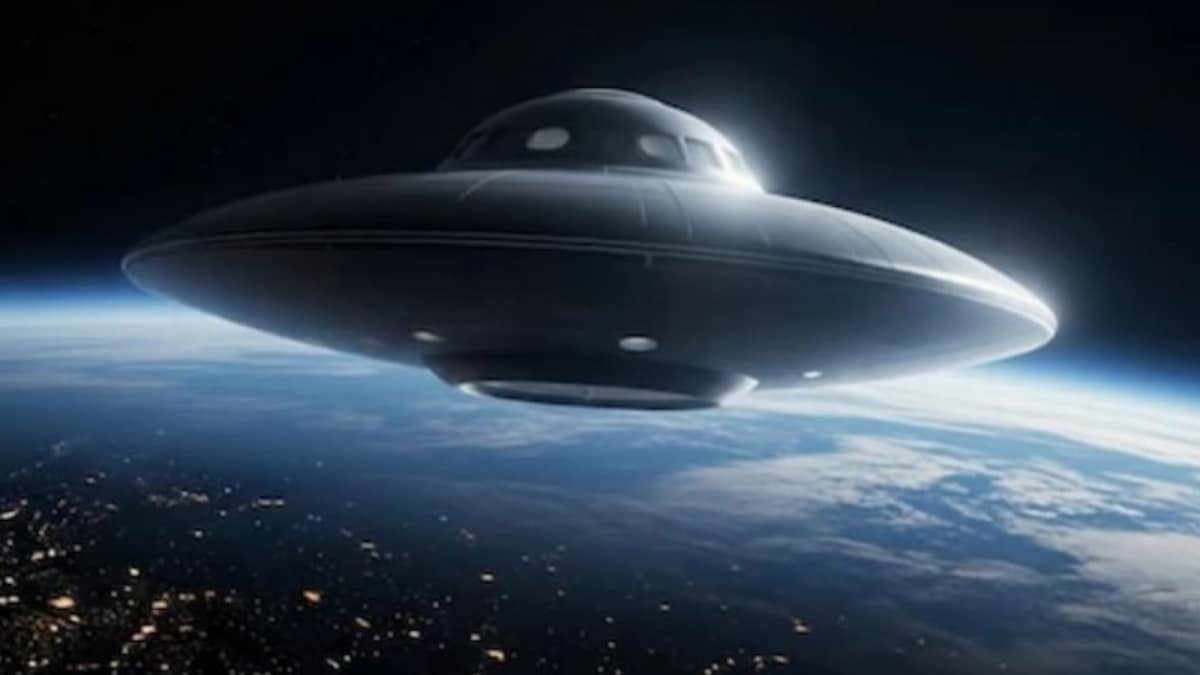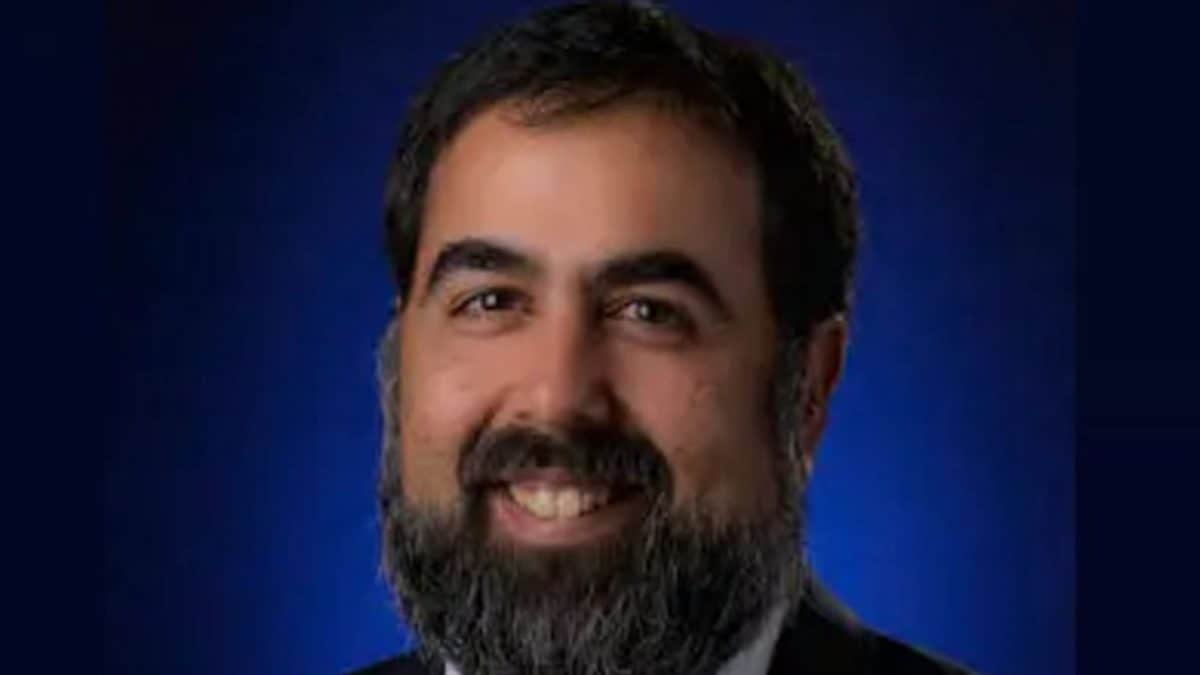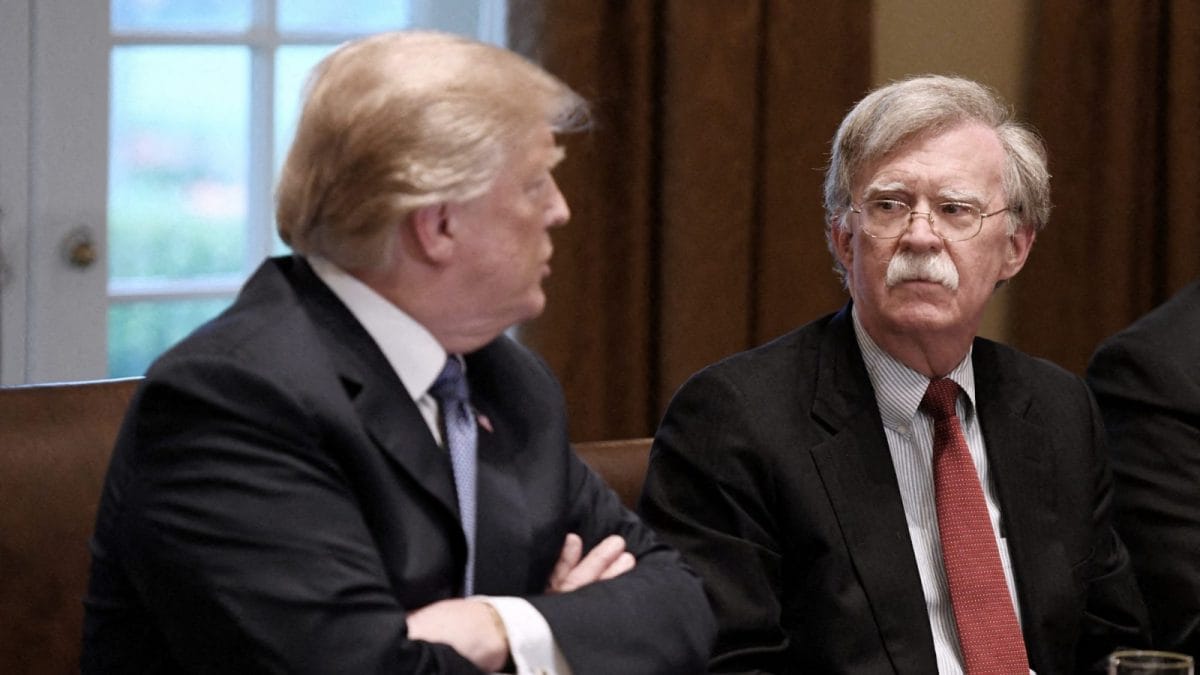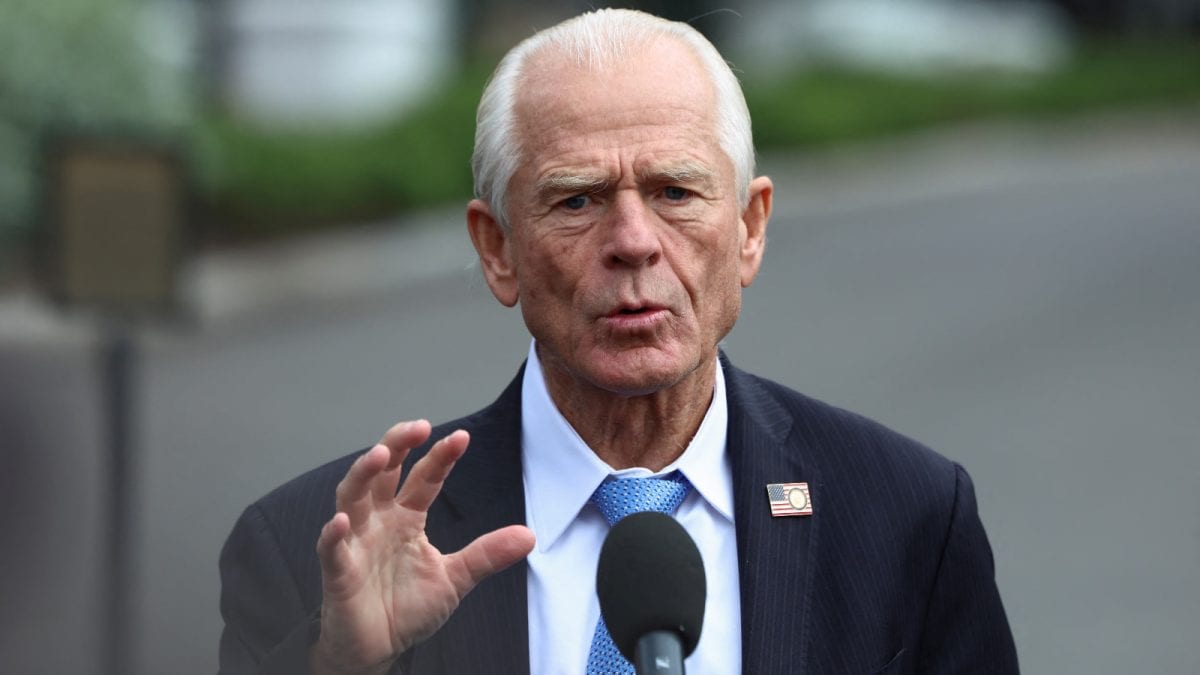Coalition of the Willing meets to 'finalise robust security guarantees for Ukraine,' Macron says
Looks like that’s full house, with more leaders joining online, too.
Opening the meeting, Macron says the leaders meet to “finalise robust security guarantees for Ukraine, and all the work that has been done in recent weeks.”
And after his very brief remarks, the media are asked to leave.
The leaders are expected to speak with Trump early afternoon, and will brief the press once all is done.
Key events 5m ago Coalition of the Willing meets in Paris - in pictures 18m ago Sweden reports 'sharp increase' in GPS interference affecting civil aviation 44m ago Google services hit by outages in south-eastern Europe - reports 2h ago Portugal declares day of mourning as funicular crash death toll rises to 17 2h ago Coalition of the Willing meets to 'finalise robust security guarantees for Ukraine,' Macron says 3h ago Not for Russia to decide if Ukraine can have foreign troops as security guarantees, Nato's Rutte says 3h ago Nato's Rutte praises Trump's impact on Nato, says Russia 'noticed' alliance 'stepping up' 3h ago Spain's Sánchez to attend coalition meeting online after his plane breaks down 3h ago Russia, China, Iran preparing for 'long term confrontation,' Nato's Rutte warns 3h ago Europe needs to produce more, faster to match Russia, Nato's Rutte says 3h ago Europe shouldn't be naive about Russia's 'destabilising, confrontational' force, Nato's Rutte says 4h ago Morning opening: Where there is a will, there is a way Show key events only Please turn on JavaScript to use this feature
Coalition of the Willing meets in Paris - in pictures
The Paris meeting of the Coalition of the Willing on Ukraine is still on-going, with a number of leaders joining online.
Let me take you inside the room:
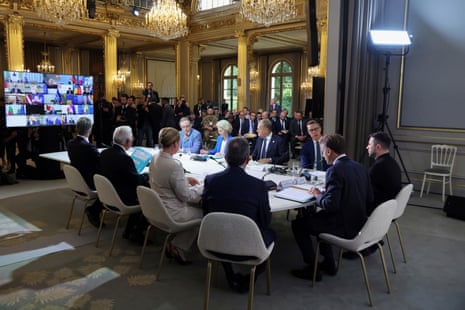
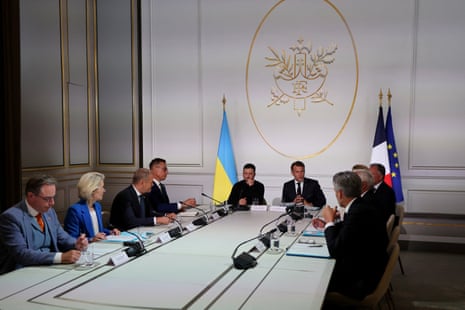
Curiously, AP quoted a source saying that US special envoy Steve Witkoff joined the leaders for a bit to discuss security guarantees for Ukraine, and you can see him in the pictures, sitting at the corner of the table.
Reuters also reported that he was expected to have a one-on-one meeting with Ukraine’s Zelenskyy during the day.
You would imagine that’s part of the preparation for their phone call with US president Donald Trump later today.
I will keep an eye on this for you.
Sweden reports 'sharp increase' in GPS interference affecting civil aviation
Sweden has reported a “sharp increase” in GPS interference over the Baltic Sea in 2025, saying it receives “almost daily” reports of incidents affecting aircraft in the area.
The new data, published by the Swedish Transport Agency Transportstyrelsen, showed 733 incidents reported this year (until 28 August), compared to 495 in 2024 and just 55 in 2023.
It added that the sources of interference has been traced to the territory of Russia.
Andreas Holmgren, the head of the unit looking at the issue, said the disruptions have increased in numbers and geographically, taking place over a larger area.
He added that the problem posed “a safety risk” for civil aviation, even if pilots had alternative systems to rely on.
The authority intends to escalate the issue at the international level, with the Civil Aviation Organisation, or ICAO, it said.
The report comes just days after the plane carrying the European Commission’s president Ursula von der Leyen was reportedly affected by GPS interference on approach to the airport in the Bulgarian city of Plovdiv, causing delays to her travel.
Google services hit by outages in south-eastern Europe - reports
Users in parts of mostly south-eastern Europe have reported problems with accessing Google services this morning.
Outage services showed self-reported issues in Bulgaria, Croatia, Georgia, Germany, Greece, Romania, Serbia, and Turkey, among others.
Turkey’s cybersecurity watchdog has requested a technical report from Google in relation to the outage, deputy transport and infrastructure minister Ömer Fatih Sayan said on X.
Turkish daily Hürriyet said the outage showed the country’s reliance on Google services, and served as “a serious warning to countries about digital sovereignty and data security.”
Greek daily Kathimerini also reported on the outage, while Romanian broadcaster Antena 3 said it caused “widespread disruption” to users.
Bulgarian Dnevnik said the outage affecting Bulgarian users lasted for “about an hour.”
In Germany, outage tracking website Allestoerungen, a division of US-based Ookla, reported an uptick in Google disruptions from around 9am, Reuters reported.
Google’s public Workspace Status Dashboard showed the issues as largely resolved within the last half hour.
A Google Cloud spokesperson confirmed to the Guardian that “multiple Google services experienced network connectivity issues in various European and Asian regions.”
“We are investigating it further,” they added.
Portugal declares day of mourning as funicular crash death toll rises to 17
Sam Jones in Madrid, Helen Livingstone, and agencies
Portugal has declared a day of national mourning after at least 17 people were killed and 21 others injured when one of the city’s famous funicular cars derailed and crashed into a building on Wednesday evening.
Footage showed the wreckage of the yellow-and-white car lying on its side in the narrow street it traverses. Its sides and top were crumpled, and it appeared to have crashed into a building where the road bends. Parts of the vehicle, made mostly of metal, were crushed.
An emergency services spokesperson said some foreign nationals were among the dead but did not identify the victims or disclose their nationalities.
The injured people, three of whom were seriously hurt, were being treated in several hospitals in the Lisbon region. Two of the most badly injured victims died in hospital overnight, raising the initial death toll from 15 to 17.
Teams of pathologists from the Forensics Institute worked through the night on autopsies, officials said.
Public prosecutors have launched an investigation into the cause of the crash, which happened just after 6pm on Wednesday as the evening rush hour began.
Known as Elevador da Glória, the vehicle goes up and down a steep hill in central Lisbon in tandem with one going the opposite way.
Map of Lisbon showing the route of the Elevador da GloriaCoalition of the Willing meets to 'finalise robust security guarantees for Ukraine,' Macron says
Looks like that’s full house, with more leaders joining online, too.
Opening the meeting, Macron says the leaders meet to “finalise robust security guarantees for Ukraine, and all the work that has been done in recent weeks.”
And after his very brief remarks, the media are asked to leave.
The leaders are expected to speak with Trump early afternoon, and will brief the press once all is done.
Poland’s Donald Tusk is at the Élysée now too.
Ukraine’s Volodymyr Zelenskyy has just arrived too – in a much bigger car than other leaders (presumably for security reasons?).
And the Danish prime minister, Mette Frederiksen.
It’s funny to watch Macron stand at the top of the stairs trying to figure out who’s coming next, and then reacting to them getting out of the car. If you look carefully, you can make out who are his favourites, I think!
The Dutch prime minister Dick Schoof is next.
Belgium’s Bart de Wever, Finland’s Alexander Stubb, and the EU’s Ursula von der Leyen and António Costa are the first leaders arriving at the Élysée Palace, welcomed by Macron on the doorstep.
We are turning our eyes to Paris now as leaders are expected to start arriving for the meeting of the Coalition of the Willing shortly.
You can watch along on our stream below, but I will bring you all the key updates here.
Not for Russia to decide if Ukraine can have foreign troops as security guarantees, Nato's Rutte says
Rutte gets also asked about his views on Russia’s opposition to the deployment of any Nato troops to Ukraine as part of security guarantees.
He says:
“But why are we interested in what Russia thinks about troops in Ukraine? It’s a sovereign country. It’s not for them to decide. …
Russia has nothing to do with this. … Ukraine is a sovereign nation. If Ukraine wants to have security guarantee forces in Ukraine to support the peace deal, it’s up to them. Nobody else can decide about it.
I think we really have to stop making Putin too powerful. He is the governor of Texas, not more. So let’s not take it too serious.”
And that ends his Q&A at the IISS Prague event.
Nato's Rutte praises Trump's impact on Nato, says Russia 'noticed' alliance 'stepping up'
Nato’s Rutte is now talking about Trump and giving him credit for motivating some countries to step up and increase their defence spending.
He says:
“Do you really think if he would not have been elected president united states, that Italy, Canada, Spain, Slovenia, Belgium and Luxembourg would have committed to do 2% this year? Do you really think that the whole of Nato would have committed to 5% committed to 5% including 3.5% core defence spending at the Nato Summit in The Hague?”
He says it was thanks to Trump that Nato is “finally dealing with this enormous pebble in the shoe, this enormous irritant that Europeans and Canada were basically lecturing the Americans, but not spending the money.”
On Russia, he says Trump “broke the deadlock” on Ukraine, insisting that “starting that conversation with Putin was important and crucial.”
He adds:
“He took that leadership role, and it is not easy to solve this, but he is absolutely committed to doing that.
We are now working on these security guarantees necessary to make sure that also Zelenskyy knows that if he starts into conversations with the Russians, hopefully soon, that he has the backup and that he knows that that the security guarantees will in place so that Russia, after a peace deal, will never ever again to try to invade Ukraine, so no repeat of Budapest and no repeat of the Minsk agreement.”
He refuses to speculate on what would make Nato trigger the Article 5, but he insists:
We are stepping up. The Russians noticed. They hate it, and I love it.
Spain's Sánchez to attend coalition meeting online after his plane breaks down
Meanwhile, we are getting a news line from Madrid saying that the Spanish prime minister, Pedro Sánchez, will join the Coalition of the Willing’s meeting online, after his plane broke down.
El País noted that the official state planes “are very old” and have a history of breaking down, but there is no political consensus on purchasing new aircraft.
Russia, China, Iran preparing for 'long term confrontation,' Nato's Rutte warns
Rutte then goes on to talk about the risk of broader confrontation in the future, referencing the pictures from the Chinese military parade in Beijing yesterday, as he says that Nato’s moves are not about “a new arms race, … but to protect” the alliance.
He says:
“Some may worry about a new arms race, but our own aim, I can tell you, is not to provoke. Our aim is to protect and to ensure that we can continue to enjoy the freedom and security that we all hold so dear, the freedom and security that Nato was founded to preserve.”
He adds:
“Russia’s unprovoked war against Ukraine is the most obvious example of that threat. But the threat will not end when this war does, nor is the challenge limited to Russia. China, Iran and North Korea pose challenges individually and as a result of the cooperation. Only look at the pictures from Beijing the last couple of days and the hand holding.
They are increasing their defence industrial collaboration to unprecedented levels. They are preparing for long term confrontation. And as I said earlier, the challenges we face are lasting. So we must be prepared.”
Europe needs to produce more, faster to match Russia, Nato's Rutte says
Rutte says that despite adopting more ambitious spending targets earlier this year, “cash alone can’t provide security.”
He goes on:
“We need the capabilities, real firepower, heavy metal, as well as new tech, and that’s what our defence industry across the Alliance needs to deliver faster than ever in Europe and also in the United States. Simply all over the Alliance, we are not producing enough.”
But he says “we are already turning the tide on defence production, and particularly when it comes to ammunition,” paying particular tribute to Czech Republic.
“We are gradually refilling our stocks and narrowing the production gap with Russia,” he says.
Europe shouldn't be naive about Russia's 'destabilising, confrontational' force, Nato's Rutte says
Nato’s secretary general Mark Rutte is speaking at the IISS Prague Defence Summit now.
He says he wants to talk about the need to increase European military capabilities to keep the continent safe.
He says Europe needs to respond to “Russia and China investing heavily to build up and modernise their militaries” at “a remarkable, I might say, at a staggering rate.”
He says this equipment is being used against Ukraine, and while the alliance is “working to end this aggression as quickly as possible,” Europe should not be naive about the future.
“This trend is not going to shift or reverse anytime soon. Russia is and for the foreseeable future, will remain, a destabilising and confrontational force in Europe and the world,” he says.
Morning opening: Where there is a will, there is a way

Jakub Krupa
The so-called Coalition of the Willing is meeting today in Paris and online for further talks on security guarantees for Ukraine in case of a peace deal with Russia.
Hosted by the French president, Emmanuel Macron, a group of mostly European leaders – including Ukraine’s Volodymyr Zelenskyy – will discuss how to turn their will to help Ukraine into concrete, specific guarantees that would give Ukraine the confidence that any peace arrangement with Russia could hold.
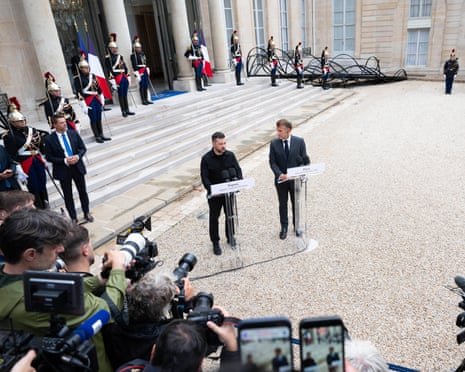
Welcoming Zelenskyy last night, Macron announced that, after months of work by military planners, Europe was finally ready to provide the guarantees and would politically endorse their plan at the meeting today. Let’s see what it entails.
The leaders start arriving around 9am BST, 10am CEST for talks among themselves, before holding a call with US president Donald Trump at 1pm BST/2pm CEST. We will hear what they agreed on an hour later.
For what it’s worth, Trump declared last night that he had been thinking about organising a face-to-face meeting between Zelenskyy and Russia’s Vladimir Putin, but did not commit to any specific action.
“Something is going to happen, but they are not ready yet. But something is going to happen. We are going to get it done,” he told CBS.
Earlier, he told reporters at a meeting with the Polish president, Karol Nawrocki, that Putin would have to make a decision on next steps and “if we are unhappy about it, you will see things happen”.
Whatever that means.
Let’s see what the day brings us. I will bring you all the key updates here.
It’s Thursday, 4 September 2025, it’s Jakub Krupa here, and this is Europe Live.
Good morning.

 2 hours ago
2 hours ago


